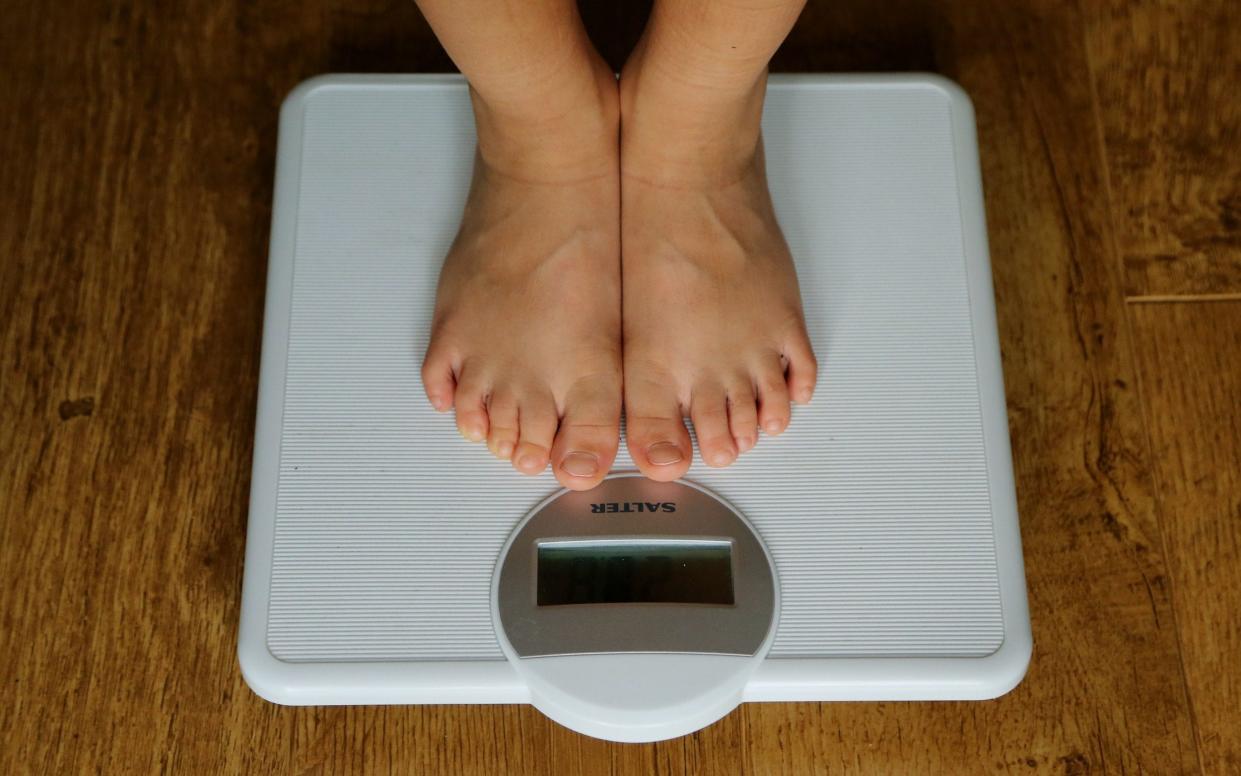Number of children admitted to hospital for eating disorders surges 70 per cent since pandemic

The number of children being admitted to hospital with eating disorders has risen almost 70 per cent since the pandemic, official figures show, with psychiatrists warning they are unable to keep up with the numbers needing help.
Experts said repeated lockdowns and periods of isolation had caused “devastating” effects on children’s mental health, fuelling a sharp rise in anorexia and bulimia. They said such uncertainty had left many children feeling they had lost control of their lives - a factor which can provoke eating disorders.
Charities warned that those admitted to hospital were only the “tip of the iceberg” as the vast majority of those suffering eating disorders do not receive care as an inpatient.
The NHS provisional data show 4,238 hospital admissions for children aged 17 and under between April and October last year. The figure is a 69 per cent rise compared with the same months before the pandemic, when there were just 2,508 admissions.
Overall, the data show there were 23,302 admissions for eating disorders among all age groups in the financial year 2020/21, up 21 per cent on the 19,244 admissions among all age groups recorded in 2018/19.
Provisional data for April to October 2021 show there were 15,941 admissions so far among all age groups, suggesting 2021/22 will be the highest year yet for those of all ages.
Many services ‘over-stretched’
Dr Agnes Ayton, the chairman of the eating disorders faculty at the Royal College of Psychiatrists, said: “The hidden epidemic of eating disorders has surged during the pandemic with many community services now over-stretched and unable to treat the sheer number of people needing help.
“We are at the point where we cannot afford to let this go on any longer.
“Early intervention is key to recovery and to preventing serious illness, which is why it’s crucial that the money announced by Government urgently reaches the frontline.
“The Government must also deliver a workforce plan to tackle the shortages in eating disorder services so that they have enough staff to treat everyone who needs help.
“All healthcare professionals must be trained in recognising early signs of eating disorders to ensure both children and adults can access specialist support as quickly as possible.”
Eating disorders are characterised by eating too much or too little, being obsessed with weight or body shape, excessive exercise, having strict food routines and/or deliberate vomiting after eating.
The most common types of eating disorders are anorexia, bulimia and binge-eating disorder.
The new NHS data show that 5,941 admissions (among all ages) from April to October 2021 were for anorexia. The next biggest set of admissions, at 3,263, were for bulimia.
The latest figures also show that hospital admissions are most common in adults aged 18 to 39, with 8,298 in this age group from April to October 2021.
There are also regional differences, with the South East and South West seeing a higher number of hospital admissions than many other regions.
Pandemic ‘deepening’ existing crisis
Tom Madders, the director of campaigns at YoungMinds, described the new figures as “worrying”.
He added: “The factors behind eating disorders are often complex but the impact of the last two years has left many young people isolated, uncertain about the future and with less control over their lives.
“The earlier someone is able to access help for an eating disorder, the more likely they are to recover.
“Yet even before the pandemic many young people struggled to get timely support for their mental health and the pandemic is only deepening this crisis.
Tom Quinn, the director of external affairs at the eating disorders charity Beat, said: “It is concerning that the number of hospital admissions for people with eating disorders is continuing to increase.
“We know that accessing quality community treatment reduces the chances of somebody needing hospital care, and so the rise in admissions suggests that people are not getting the support that they need quickly enough.
“The pandemic has had a devastating impact on people with eating disorders, with many experiencing increased anxiety and isolation during the ongoing uncertainty and disruption since March 2020.”
He added: “The number of hospital admissions is only the tip of the iceberg, and there are many other people needing support for an eating disorder.”

 Yahoo News
Yahoo News 
